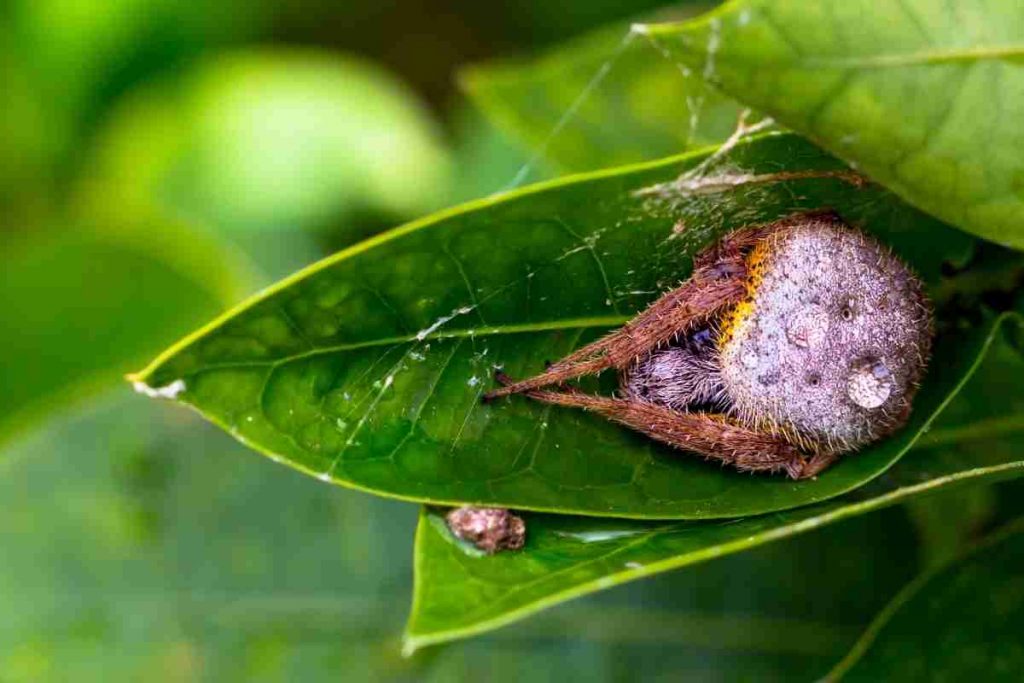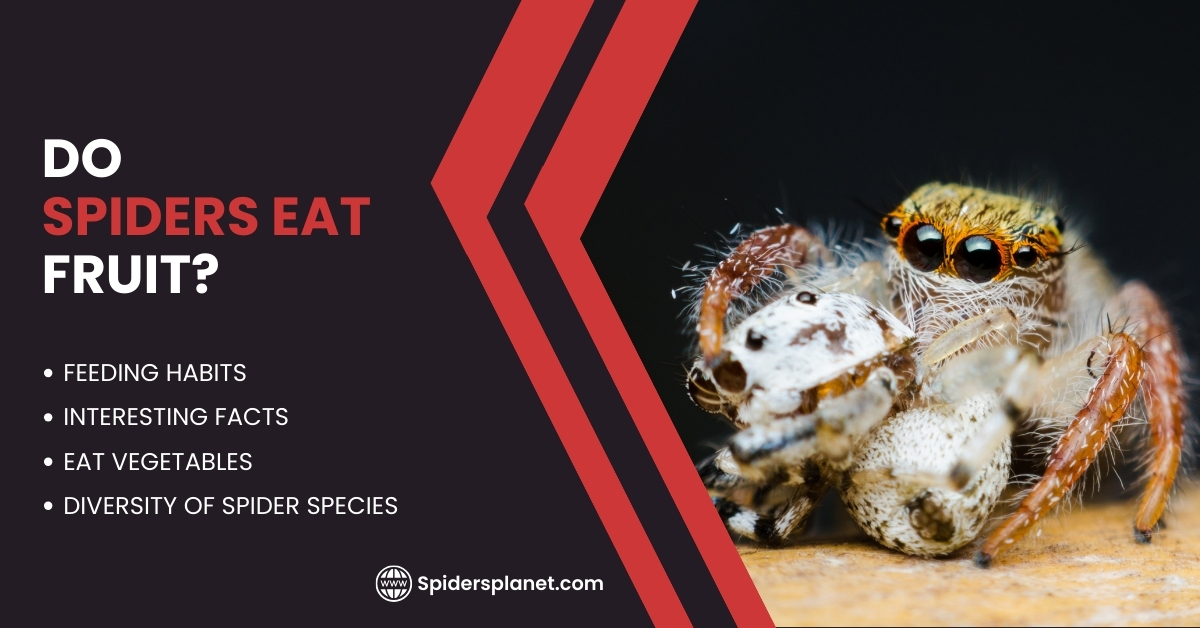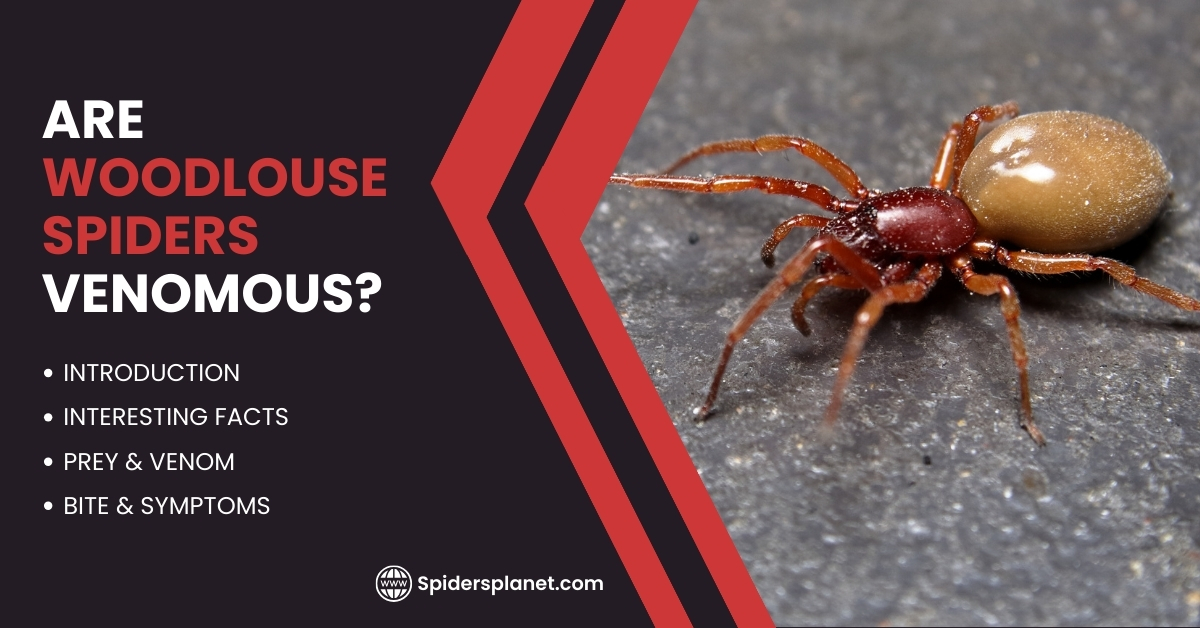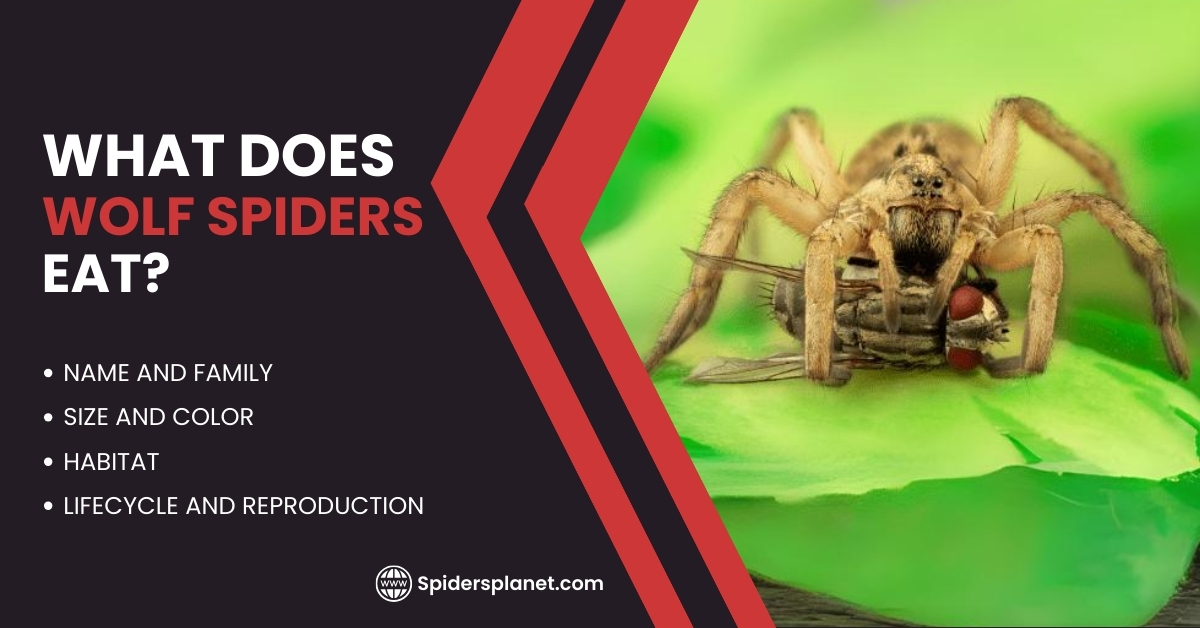When you see a spider frozen in place, for hours, you might be wondering are they actually sleeping, or are they just waiting for its next meal.
Spiders can spend hours sitting in the same location, not moving an inch! So it stands to reason why some people may think the spider is asleep.
Spiders typically take short naps, while waiting for prey. However, they usually last for only a few minutes at a time. “But” why do spiders need to sleep? Well, here are 7 reasons why!
1. To Conserve Energy
All animals need sleep to help their bodies recover from the day and restore energy levels. “This is especially true for spiders, who use a lot of energy when making and spinning web.”
When spiders take a nap, their body temperature drops and their metabolism slows down, which helps them conserve energy. “This is especially true for baby spiders, who need to save as much energy as possible to survive and grow.”
Nocturnal spiders will typically conserve energy during the day by “hiding under a rock” or “in their nest” keeping very still in a sleep state. They do this to avoid being eaten by predators.
Related Article:
2. Maintain Their Focus
If a spider is deprived of sleep it will be more difficult for them to concentrate and react quickly. They also became less logical and more aggressive!
This suggests that sleep helps spiders maintain their focus and strengthens their ability to plan and execute complex tasks.
3. To Improve Their Vision And Coordination
Like all animals, spiders rely on their vision to help them hunt and avoid predators. However, over time, the spider’s eyes can become tired and strained.
Sleep helps the spiders’ eyes recover and improves their vision. It also helps them coordinate their movements better.
This is especially important for baby spiders, who need to be able to move quickly and accurately is key for their survival.
4. Helps Spiders Hunt Effectively
Like all animals, spiders rely on their vision to help them hunt and avoid predators. However, over time, the spider’s eyes can become tired and strained.
Sleep helps the spiders’ eyes recover and improves their vision. It also helps them coordinate their movements better.
This is especially important for baby spiders, who need to be able to move quickly and accurately is key for their survival.
5. Recover From Injuries
Spiders are constantly at risk of “being injured” whether it’s from predators, prey, or accidents. When they suffer an injury spiders will often go into hiding and take a nap. During this time, the spider’s metabolism slows down and it becomes less active.
While it may seem like the spider is just resting, this period of inactivity is crucial for its recovery. The reduced metabolic rate provides the spider with extra energy that can “be used” to repair damaged tissues.
Additionally, sleep helps to reduce inflammation and promote healing. As a result, they are more likely to recover from injuries and survive attacks from predators.
6. Strengthens The Spider’s Immune System
Spiders rely on their immune system to protect themselves from disease and illness. However, over time, the spider’s immune system can become weakened by stress and lack of sleep.
Sleep helps the spider’s immune system to recover and become stronger. “This is especially important for baby spiders, who are more vulnerable to illness and disease.”
Without a strong immune system, they would be more likely to get sick and die.
7. Helps Spiders Reproduce
Another reason spiders need sleep is to help them produce eggs. When a spider is well-rested, it is more likely to lay a larger number of eggs.
Sleep also helps the spiders’ bodies to produce more sperm. This is important because it means that the spider will have a better chance of reproducing and passing on its genes to future generations.
If spiders didn’t get enough time to rest, they would be less likely to reproduce and their population would eventually die out.
Related Article:

What Happens If Spiders Don’t Get Any Sleep?
Effects Their Ability To Build Webs
At night, while you are sound asleep in your bed, a spider is busy spinning its web. But what happens if that spider doesn’t get any sleep? Studies have shown that spiders who are deprived of sleep become less able to spin webs that are strong and symmetrical.
In fact, sleep-deprived spiders build webs that are 30% weaker than those built by well-rested spiders. “In the wild, this could mean the difference between life and death, as a weak web is more likely to collapse under the weight of prey or break in a strong wind.”
Susceptible To Predators
A spider that is sleep-deprived is also more likely to become the prey of predators. “This is because sleep deprivation can cause them to make mistakes, such as walking in open areas or falling off their webs.”
These mistakes make it easier for predators to spot and capture them. In the wild, this could mean that a spider who doesn’t get enough sleep will be less likely to survive and reproduce.
Irritable And Aggressive
Finally, sleep deprivation can cause spiders to become irritable and aggressive. This is because their bodies are not able to function properly without enough rest.
Spiders who are sleep-deprived may bite humans or other animals out of frustration or aggression. In some cases, these bites can be dangerous, especially if the spider is venoms.
How Do Spiders Sleep?
Most people are familiar with the image of a spider spinning a web. But how do these eight-legged creatures actually sleep? Well, there are a number of ways spiders can sleep.
- Upside Down: One of the most common ways spiders sleep is by hanging upside down from their webs. This position allows them to be prepared for any prey that may come along. It also allows them to take advantage of gravity, which makes it easier for them to build their webs.
- Suspended In Midair: Another way spiders sleep is by suspending themselves in midair. This position is often used by baby spiders, who are not yet able to build webs of their own. The spider will use its silk to create a small cocoon-like structure in which it can rest safely.
- On The Ground: Finally, some spiders prefer to sleep on the ground. This position is more common among larger species of spiders, who are not as vulnerable to predators. On the ground, they can build burrows or dens in which they can sleep safely.
- In the middle of Their Webs: Some spiders will also sleep in the middle of their webs. This position allows them to be prepared for any prey that may come along. Once the prey lands on their web the vibrations will alert the spider and wake them up so to speak.
Do Spiders Sleep With Their Eyes Open?
This is a question that has been asked by many people over the years, but the answer to this question is yes! Spiders do indeed sleep with their eyes open.
This is because spiders don’t have eyelids! you see, eyelids are used to protect our eyes from things like dust, dirt, and other foreign objects.
But, since they don’t have eyelids, they have to sleep with their eyes open so that they can keep an eye out for predators or prey.
Related Article:
Do Spiders Curle Up When They Sleep?
When it comes to spiders, there are many misconceptions and urban legends. One of the most persistent myths is that they curl up when they sleep. However, this is not actually true.
While some spiders may adopt a more relaxed posture when they rest, they do not curl up into a ball like many other animals. Instead, spiders remain alert and attentive even when they are resting, ready to spring into action at a moment’s notice.
Do Spiders Sleep More In The Winter?
In the winter spiders will typically sleep more. This is because there is less food available and the temperature outside is colder. Spiders will often enter a state of hibernation, which is a type of sleep that allows them to conserve energy and survive the winter months.
Hibernation is a survival strategy that many animals use, not just spiders. During this time, the animal’s heart rate and metabolism slow down, and they may even stop breathing for long periods of time. This allows them to save energy and survive on very little food.
While most spiders do sleep more in the winter, there are some species that are active all year round. These spiders typically live in warm climates where it does not get cold enough to trigger hibernation.
How Long Do Spiders Sleep For?
The length of time that spiders sleep can vary depending on the species. Some spiders may only sleep for a few hours at a time, while others may sleep for days or even weeks.
The amount of sleep that a spider needs also depends on the time of year. For example, spiders will typically sleep more in the winter months when food is scarce and the weather is cold.
Do All Spiders Sleep?
Although we may not always see them, spiders are some of the most common animals on the planet. There are over 45,000 species of spiders, and they can be found in nearly every corner of the world. But do all these spiders sleep?
The answer is yes – all spiders sleep in the same way. However, there are some species of spiders that do not need to sleep as much as others.
Do Spiders Dream?
Although we don’t know for certain, it’s unlikely that spiders dream. For one thing, spiders have very simple brains that lack the cerebral cortex, which is the part of the brain responsible for consciousness and higher cognitive functions such as memory and imagination.
Furthermore, spiders generally don’t sleep for more than a few hours at a time, and during this time they are usually in a state of rest called quiescence, which is similar to hibernation.
During quiescence, spiders’ brain activity is greatly reduced, and they are not known to exhibit any of the REM (rapid eye movement) sleep that is associated with dreaming. So although we can’t say for sure, it seems highly unlikely that spiders can dream.
Conclusion
So there you have it! We hope you have found this article interesting and informative! and that it’s answered some of the questions you may have had about spiders and their sleep habits.
Spiders are fascinating creatures, and we hope you’ve enjoyed learning a little more about them. If you want to learn more about spiders don’t forget to check out our latest blog posts on all things arachnid!
Related Article:



